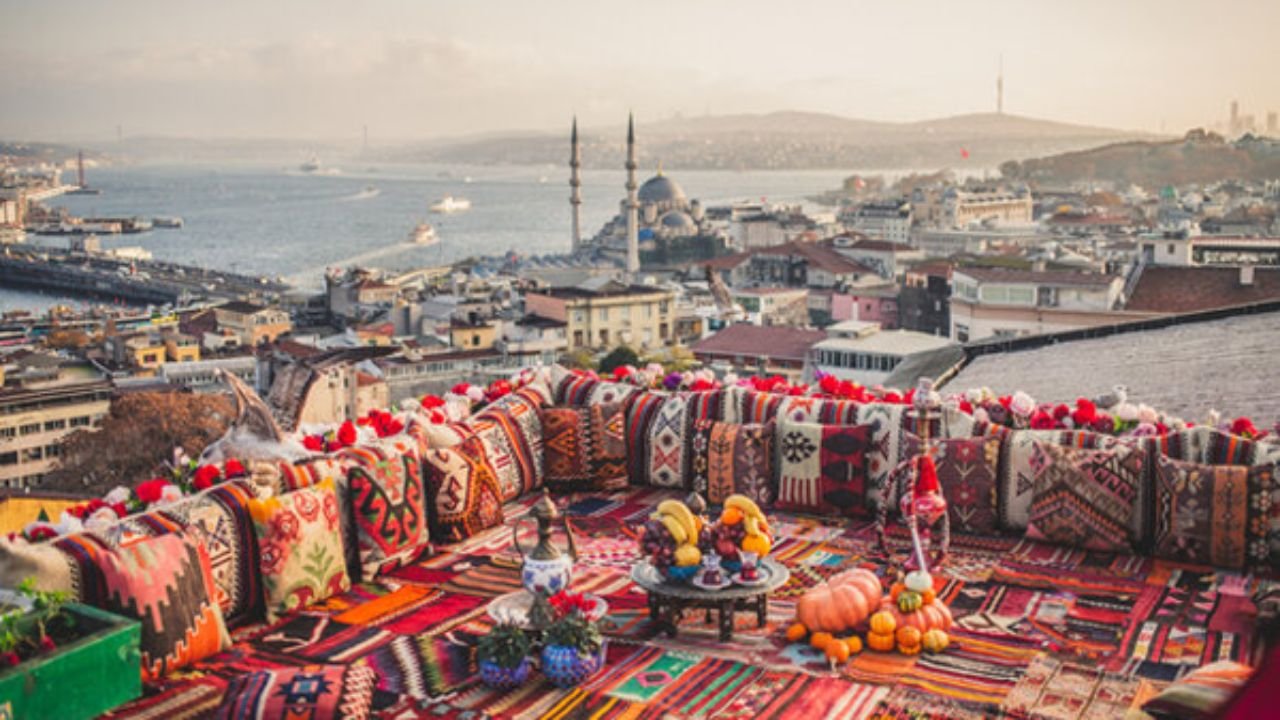In Turkey’s vibrant tapestry of culture and history, evırı stands out as a profound symbol of unity and diversity. This concept, deeply embedded in the Turkish spirit, transcends mere tradition, embodying the essence of national cohesion. For history enthusiasts, cultural travelers, and the Turkish diaspora, understanding evırı offers a lens into the rich cultural mosaic that defines Turkey.
Evırı is not just a word; it represents a connection between the past and present, a bridge linking diverse identities within Turkey. It embodies the idea of unity in diversity, reflecting how various ethnicities, traditions, and beliefs come together to form a cohesive society. Throughout this article, we’ll explore the historical roots, cultural significance, and modern interpretations of evırı, shedding light on its role as a unifying force in Turkish culture.
Evırı A Historical Perspective
Origins and Etymology of Evırı
The term “evırı” finds its roots in ancient Turkic languages, evolving over centuries to become an integral part of Turkish vocabulary. Originally, it signified the coming together of different elements, akin to weaving threads into a single fabric. This etymology hints at its role as a symbol of unity, encapsulating the idea of bringing diverse elements together in harmony.
In Ottoman times, evırı represented the unity of the empire’s diverse populations. It was more than a concept; it was a lived experience as the empire spanned Europe, Asia, and Africa, encompassing myriad cultures, languages, and religions. This historical backdrop set the stage for evırı to evolve into a symbol of multiculturalism and inclusivity.
Evolution Through Turkish History
From the Ottoman Empire to the modern-day Republic of Turkey, evırı has remained a constant, albeit evolving, symbol. During the Ottoman era, it was embodied in the millet system, allowing religious communities autonomy while promoting coexistence. This system reflected the evırı ethos of unity amidst diversity.
In contemporary Turkey, evırı continues to play a pivotal role. It resonates in national policies that emphasize inclusivity and equal rights, striving to create a society where diverse voices are heard and respected. The evolution of evırı mirrors Turkey’s own transformation, adapting to modern values while retaining its core essence of unity.
Notable Historical Events and Figures
Numerous historical events and figures have shaped the concept of evırı. The Tanzimat reforms of the 19th century, for instance, aimed to modernize the Ottoman Empire and foster a sense of shared identity among its citizens. These reforms laid the groundwork for the later development of a unified Turkish state.
Mustafa Kemal Atatürk, the founder of modern Turkey, played a crucial role in redefining evırı. His vision of a secular, inclusive nation emphasized the unity of all Turkish citizens, regardless of ethnicity or religion. Atatürk’s reforms reshaped the nation’s identity, reflecting the enduring influence of evırı in shaping Turkey’s path.
Evırı in Daily Life
Woven into Turkish Society
In daily life, evırı permeates various aspects of Turkish culture. It is seen in the warm hospitality extended to guests, reflecting the ethos of inclusivity and acceptance. Turkish households often welcome visitors with open arms, embodying the spirit of evırı by bringing diverse people together over a shared meal.
Evırı also manifests in community gatherings and local celebrations. Festivals and markets provide opportunities for people of different backgrounds to come together, fostering understanding and camaraderie. Through these interactions, the concept of evırı is not just discussed but actively experienced, reinforcing its place in Turkish daily life.
Examples in Art, Music, and Literature
Turkish art, music, and literature offer rich examples of evırı. In traditional arts like carpet weaving, diverse patterns and colors are harmoniously combined, symbolizing the unity of different cultural influences. Similarly, Turkish music often blends various styles and instruments, creating a fusion that embodies evırı.
Literature, too, reflects this concept. Authors like Orhan Pamuk weave narratives that explore the intersections of identity and culture, illustrating the complexity and beauty of unity in diversity. Through these artistic expressions, evırı continues to inspire and resonate with audiences worldwide.
Cultural Practices and Celebrations
Cultural practices and celebrations provide a platform for evırı to shine. Traditional weddings, for instance, often incorporate elements from different regions, reflecting the diverse heritage of the couple. This blending of traditions highlights the value placed on unity and mutual respect.
National holidays like Republic Day serve as reminders of Turkey’s collective identity. They are occasions for citizens to come together, celebrating their shared history and aspirations. In these moments, evırı becomes a visible and tangible force, uniting people in collective joy and pride.
Symbolism and Unity
Analysis of Evırı as a Symbol
At its core, evırı symbolizes unity in diversity. It embodies the idea that strength lies in the harmonious coexistence of different elements. This symbolism is not just theoretical; it has practical implications for fostering social cohesion and mutual understanding in Turkey.
Evırı encourages dialogue and collaboration, urging individuals to appreciate the richness that diversity brings. By highlighting commonalities while respecting differences, it promotes a sense of belonging and shared purpose. This dual focus on unity and diversity makes evırı a powerful symbol in contemporary Turkish society.
Fostering National Identity and Inclusivity
In fostering national identity, evırı plays a crucial role. It serves as a reminder that Turkey’s strength lies in its multicultural heritage. By embracing this diversity, the nation can build a more inclusive and equitable society, where all voices are valued and heard.
Government initiatives and educational programs often draw on evırı to promote inclusivity. By emphasizing the importance of cultural diversity and mutual respect, these efforts aim to create a more harmonious and cohesive society. Through evırı, Turkey continues to develop a national identity that celebrates diversity as a source of strength.
Comparative Perspectives on Similar Concepts
The concept of evırı is not unique to Turkey; similar ideas exist in other cultures. In South Africa, the term “ubuntu” conveys the idea of interconnectedness and shared humanity. In India, the philosophy of “unity in diversity” is a foundational principle, reflecting the coexistence of various religions and cultures.
By comparing these concepts, we can gain a broader understanding of the universal appeal of unity in diversity. Each culture brings its unique interpretation, enriching the global discourse on inclusivity and mutual respect. Evırı, in this context, becomes part of a larger conversation about building harmonious societies.
Evırı and the Turkish Diaspora
Transmission Across Borders
For the Turkish diaspora, evırı serves as a vital link to their heritage. Across borders, it is transmitted through cultural events, food, music, and language. These practices help maintain a connection to Turkish culture, fostering a sense of identity and belonging among expatriates.
Diaspora communities often organize festivals and gatherings that celebrate Turkish traditions, providing spaces for evırı to flourish. These events not only strengthen ties within the community but also introduce Turkish culture to a wider audience, promoting cross-cultural understanding and appreciation.
Connecting with Heritage and Identity
For many in the Turkish diaspora, evırı is a means of connecting with their roots. It offers a sense of continuity, bridging the gap between the homeland and their current environment. Through evırı, individuals can explore their identity, finding ways to integrate their cultural heritage into their daily lives.
Language plays a crucial role in this process. By maintaining the use of Turkish at home and in community settings, the diaspora preserves a vital link to their cultural identity. Evırı, therefore, becomes an integral part of this linguistic and cultural preservation, strengthening ties to Turkey.
Building Bridges in Foreign Lands
In foreign lands, evırı acts as a bridge, facilitating interaction between the Turkish diaspora and local communities. By sharing their cultural heritage, expatriates contribute to the multicultural landscape of their host countries, enriching the social fabric with new perspectives and experiences.
Initiatives like cultural exchanges and collaborative projects often draw inspiration from evırı. By fostering dialogue and mutual respect, these efforts build connections and promote understanding. Through evırı, the Turkish diaspora not only preserves its cultural identity but also contributes to the global community.
You May Also Like: Exploring Hidden Gems on myfavouriteplaces.org:// blog
Conclusion
In conclusion, evırı stands as a profound symbol of unity and diversity in Turkey’s cultural mosaic. Its historical roots, cultural significance, and modern interpretations highlight its enduring relevance in fostering social cohesion and inclusivity. For history enthusiasts, cultural travelers, and the Turkish diaspora, understanding evırı offers a rich and nuanced perspective on Turkey’s dynamic cultural landscape.
By exploring the multifaceted aspects of evırı, we gain insights into the power of unity in diversity. This concept, deeply embedded in Turkish culture, encourages us to appreciate the richness that diversity brings while celebrating our shared humanity. Through evırı, we can build bridges, foster understanding, and create a more harmonious world.
For those seeking to explore this fascinating topic further, numerous resources and cultural experiences await. Whether through literature, art, or community engagement, evırı offers endless opportunities for discovery and connection. Embrace the spirit of evırı, and join us in celebrating the unity that defines Turkey’s living mosaic.
FAQs
What does evırı mean?
Evırı is a Turkish concept symbolizing unity in diversity, reflecting how different elements come together harmoniously.
How is evırı represented in Turkish culture?
Evırı is evident in art, music, literature, and cultural practices that emphasize inclusivity and multiculturalism.
What role does evırı play in the Turkish diaspora?
Evırı helps the diaspora maintain connections to their heritage, fostering identity and building bridges in foreign lands.
Are there similar concepts to evırı in other cultures?
Yes, similar concepts include “ubuntu” in South Africa and “unity in diversity” in India, both emphasizing interconnectedness.
Why is evırı significant in modern Turkey?
Evırı promotes national identity and inclusivity, encouraging dialogue and collaboration in a multicultural society.











